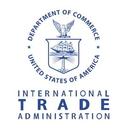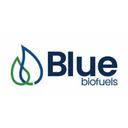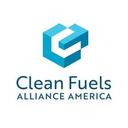Calumet Inc. on Feb. 12 reported that the Trump administration has successfully completed the “tactical” review of the $1.44 billion DOE loan guarantee to support expanded SAF production its Montana Renewables facility.
The U.S. Department of Commerce’s International Trade Administration on Feb. 12 announced it would postpone a meeting of the Renewable Energy and Energy Efficiency Advisory Committee that was scheduled to take place that day.
Comstock Inc. on Feb. 4 announced that its subsidiary, Comstock Fuels Corp. was approved by the Oklahoma State Treasurer’s Office to issue up to $152 million in qualified private activity bonds.
The Clean Fuels Alliance Foundation has welcomed newly elected director Ezra Finkin to the Clean Fuels Alliance Foundation board of directors. Finkin is the director for corporate affairs and development with Chevron Renewable Energy Group.
Comstock Inc. on Jan. 30 announced the execution of definitive agreements between Comstock Fuels Corp. and SACL Pte. Limited, a Singapore-based renewable fuel project developer, related to projects in Australia, New Zealand, Vietnam and Malaysia.
Jord AB and Votion Biorefineries AB have announced a strategic partnership to convert Jord’s sustainable C4-grass biomass into biocrude and sustainable aviation fuel (SAF). This collaboration aims to accelerate the global energy transition.
Ginkgo Bioworks on Jan. 23 announced that Ginkgo Automation will design and deploy a flexible, anaerobic-enabled laboratory automation system for the Great Lakes Bioenergy Research Center, a U.S. DOE-funded facility at UW–Madison.
To further strengthen their collaboration on reducing emissions in logistics, DHL Group and Neste have agreed to jointly evaluate how Neste’s renewable solutions, such as renewable diesel and SAF, can support DHL in its decarbonization targets.
Avfuel Corp. on Jan. 31 announced it is expanding the availability of sustainable aviation fuel (SAF) by offering the fuel at three additional supply terminals located in Linden, New Jersey; Pasadena, Texas; and Florida’s Port Everglades.
Verity and Landus announce agreement to track and verify sustainable agriculture attributes at soybean facility
Verity Holdings LLC, a subsidiary of Gevo Inc., and Landus have announced a new agreement aimed at unlocking added value for farmers through sustainability premiums via export markets.
Moeve and Norwegian signed a contract to accelerate the decarbonization of air transport between Spain and the Nordic region by promoting SAF. Moeve produces SAF at its La Rábida Energy Park (Huelva) from used cooking oils.
The U.S. Department of Commerce’s International Trade Administration has announced the Renewable Energy and Energy Advisory Committee will hold a meeting Feb. 12 in Washington, D.C. The event will also be streamed online.
The Singapore Airlines (SIA) Group has signed a memorandum of understanding (MoU) to potentially source neat sustainable aviation fuel (SAF) from Aether Fuels, which plans to commence production in five years.
The International Air Transport Association on Jan. 31 released its methodology for accounting and reporting the emissions reduction associated with the use of sustainable aviation fuel (SAF) by airlines.
Blue Biofuels has signed an agreement to acquire 35.5 acres of land in Frostproof, Florida. The company plans to develop a 3 MMgy facility on the site. Planned expansion projects would boost capacity to 100 MMgy of cellulosic ethanol and SAF.
Phillips 66 on Jan. 31 released fourth quarter financial results, reporting improved earnings for its renewable fuels segment on higher margins for its Rodeo complex in California and stronger international results.
U.S. operatable biofuel production capacity was unchanged in November 2024, according to data released by the U.S. EIA on Jan. 31. Feedstock consumption was up from both the previous month and November 2023.
Clean Fuels Alliance America hosted its annual Clean Fuels Conference in late January. During the event, experts shared the state of the biobased diesel industry today and the outlook for the near-and long-term.
Boeing announced it has become a key project development partner of Norsk e-Fuel, a company developing an industrial-scale power-to-liquids (PtL) facility in Europe that will produce sustainable aviation fuel (SAF).
Valero Energy Corp. on Jan. 30 released Q4 financial results, reporting that both its ethanol and renewable diesel segments were profitable during the period. The company also announced that its SAF project in Texas is fully operational.
Texas Gov. Greg Abbot on Jan. 29 announced Summit Next Gen LLC’s proposed ethanol-to-SAF project under development near Houston qualifies under the state’s new Texas Jobs, Energy, Technology and Innovation (JETI) program.
Calumet on Jan. 28 announced disbursement of the first tranche of its $1.44 billion U.S. DOEloan guarantee to support the expansion of SAF production at its Montana Renewables facility will be delayed to allow review by the Trump administration.
DHL Express has signed a deal with Cosmo Oil Marketing Co. Ltd. for the purchase of sustainable aviation fuel (SAF) to drive emission-reduced air freight in Japan. The deal represents an annual purchase of 7.2 million liters of SAF.
Haffner Energy, LanzaJet, and LanzaTech join forces to unlock alcohol-to-jet SAF production from biomass residues
Haffner Energy, LanzaTech, and LanzaJet on Jan. 28 announced they are working together to explore joint biomass-to-sustainable aviation fuel (SAF) projects covering the entire production value chain.
CPM|Crown has announced the launch of its Lifecycle360 support services, which are designed to help companies streamline and optimize the full lifecycle of their facilities, from pre-engineering to long-term maintenance needs.
SAF Magazine, in collaboration with the CAAFI, has announced the 2025 North American SAF Conference & Expo will be held Sept. 22-24 in Minneapolis, Minnesota, at the Minneapolis Convention Center. Speaker abstracts can be submitted through May 9.
SkiesFifty and Frontline BioEnergy have announced a new partnership to advance the commercialization of waste-to-energy technology, targeting the production of SAF. Together, they will establish a new company to spearhead the initiative.
OMV and Airbus have signed a memorandum of understanding to advance the decarbonization of the aviation industry through SAF. The companies will explore joint solutions to broaden the voluntary access to SAF for various customer groups.
Comstock Inc. on Jan. 21 announced that its subsidiary, Comstock Fuels Corp., has executed an agreement with Hexas Biomass Inc., securing exclusive rights to Hexas’ intellectual properties in liquid fuels applications.
Enilive has announced commissioning is underway at it’s the Gela biorefinery in on the Italian island of Sicily. The facility has the capacity to produce 400,000 metric tons per year of sustainable aviation fuel (SAF).
Advertisement



























